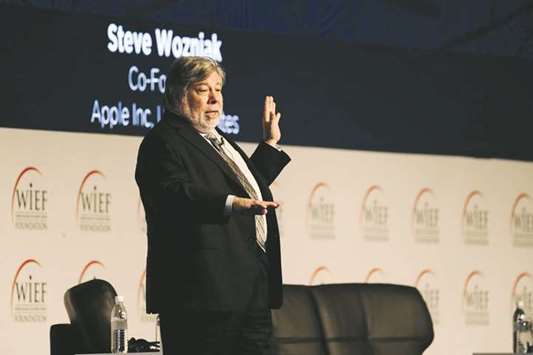The 13th edition of the influential World Islamic Economic Forum, or WIEF, held in Kuching, Malaysia, from November 21 to 23, saw the signing of 16 memoranda of understanding (MoUs) and partnership agreements valued around $2.5bn, one of the highest volumes in the WIEF’s history. The MoUs and partnerships have been agreed on between both local and international organisations and companies, the latter being from Indonesia, China, US and Canada. They are mainly focusing on financial services technology, digital economy, smart cities, Islamic crowdfunding, blockchain applications, QR codes for standardised halal products, halal and Shariah compliance frameworks in the digital economy, as well as entrepreneurship and creative education within the Islamic economy. When facilitated, this could add to trade deals entered during past WIEF events by diverse industry sectors from both Muslim and non-Muslim nations that amounted to some $13bn, according to WIEF spokeswoman Soo Hoo Siew Kheng.
However, not just the number of signings was remarkable, but also the theme of the three-day event, namely ‘Disruptive Change: Impact and Challenges” on the Islamic economy, including finance and banking, which explains the predominantly digital- and new economy-centred partnership agreements.
“The 13th WIEF was a tremendous success and was in many ways our strongest-ever edition,” said Musa Hitam, chairman of the World Islamic Economic Forum Foundation.
“We intentionally focused on creating concrete opportunities and action points to truly enable businesses, countries and communities – a mission that the World Islamic Economic Forum is in a unique position to deliver,” he added.
“Beyond their commercial value, these MoUs deliver a high impact to the global business community by creating new collaborations, opening new markets and uncovering new ways to capitalise on opportunities presented by a variety of disruptive forces shaping the world today,” Hitam noted.
The WIEF also announced a new alumni network that will connect 17,000 WIEF alumni members from 150 countries to create a global community of leaders and thinkers to shape the Islamic economy in the future. The network comprises industry leaders and professionals across the diverse sectors of technology, Islamic finance, logistics, tourism, halal food and many other emerging sectors in the Muslim and non-Muslim world.
“With this network, we are harnessing the aggregate power of our members and of the organisations and industries they represent, their intellectual currency and their positive contributions. This goes beyond networking to always-on collaboration and the potential of finding new connections between seemingly unrelated industries to create new solutions and products for the Islamic economy,” Hitam said.
One of the keynote highlights was the speech of Steve Wozniak, co-founder of Apple Inc, in a rare appearance at an Islamic economy forum. Wozniak pointed out that the most important thing today for an economy is a focus on digital growth which starts with the respective curricula in educational institutions.
“The government should be behind the digital growth. It is really the future for the whole world. The countries that do their best in it are going to go through this and have the best level of income,” Wozniak said.
He suggested that a country should always strive to attract the best talents and train them further, as well as modify school programmes to include software, hardware, robotics and digital technologies already into the curriculum of primary education. He also said it was crucial that tools – not just technology, but also funding and market access – are being made available to young people for free or just a small contribution.
“That way, they [young entrepreneurs] can start developing on their own and find out what they like to do and build. Incubators is a good term to use. They must be willing to work on a lot of projects that make no money but are fun and meaningful to them,” Wozniak noted, adding that, most of all, governments should be ready to provide support to those start-ups.
He also cited disruptive changes brought on by rapid advances in technology.
“The effects of disruption have rippled through every aspect of modern civilisation – just look at how personal computing has fundamentally transformed everything from the economy to how society functions from the ground up,” he said, adding that governments need to accept that digital technologies “represent the future of the whole world,” which certainly includes Muslim countries that are asked to adopt such new digital and disruptive technologies as deeply as possible in order to strengthen their economic standing and develop powerful Islamic economies.

Steve Wozniak, Apple Inc’s co-founder, made a rare appearance at an Islamic economy forum at the 13th WIEF held last week in Kuching, Malaysia, where he talked about disruptive technologies and the need for governments to adapt to them. Source: WIEF
